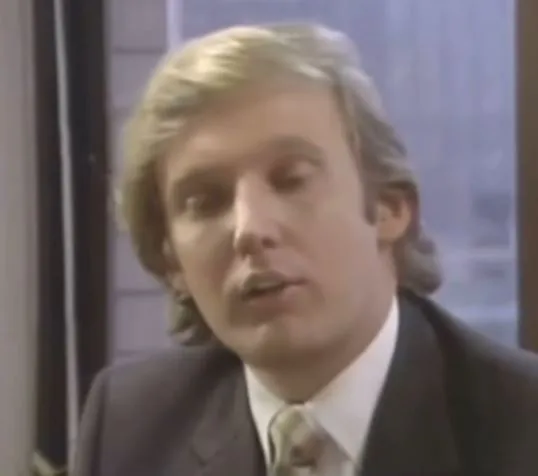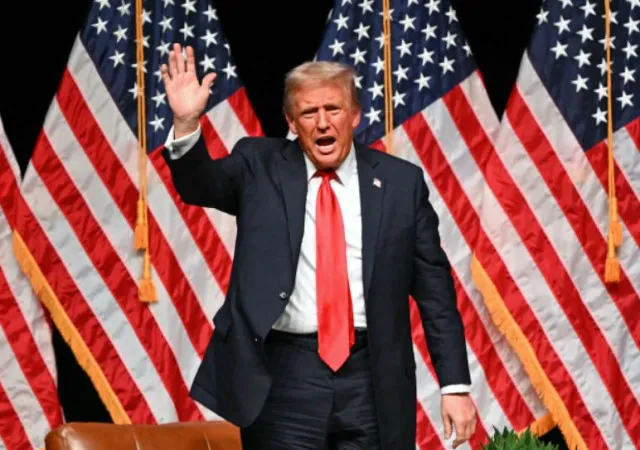In a resurfaced interview, a young Donald Trump shared his thoughts on what it takes to run for president.
Decades before entering the White House, Trump voiced his views on who is best suited for the role. At just 34 years old, he offered insights that now resonate after his second electoral victory.
Early ppinions on presidential leadership

In the early 1980s, Trump was widely known as a successful businessman in real estate.
Already head of the Trump Organization, he had focused on building and renovating hotels, casinos, and golf courses.
However, politics wasn’t his focus yet. During an interview, a reporter asked Trump if he’d consider running for president one day. His response was surprising: “I really don’t believe I would.”
Despite his hesitation, Trump shared strong opinions on who should lead the country.

He felt that highly capable people often avoided political roles, calling it a “sad commentary.” He believed that while the U.S. had skilled citizens, the political process didn’t attract them.
Why “someone like him” might avoid politicsm
When asked why someone like him wouldn’t pursue the presidency, Trump spoke candidly. He explained that he didn’t reject the idea of dedicating himself to the nation but viewed politics as a “mean life.”
He noted, “Someone with strong views—possibly right but unpopular—might lose to someone with a ‘big smile and no great brain.’”

He even questioned whether an honest leader like Abraham Lincoln would be electable in the modern age.
“I also see it as somebody with strong views, and somebody with the kind of views that are maybe a little bit unpopular, which may be right, but may be unpopular – [they] wouldn’t necessarily have a chance of getting elected against somebody with no great brain but a big smile.
“That’s a sad commentary for the political process […] Abraham Lincoln would probably not be electable today.”
A shift from reluctance to determination

Fast forward four decades, Trump fought a tough campaign against Kamala Harris and emerged victorious.
In contrast to his younger self, he embraced the role and made clear plans for his return to office. Despite polarizing opinions, he secured the majority of electoral votes on November 5.
Harris’s response and Trump’s future plans

Though falling short of the required 270 votes, Harris remained optimistic, promising her supporters to “keep fighting.” Trump, on the other hand, has started planning his agenda as the incoming president, keen to shape his legacy in his second term.
Trump’s early statements about the presidency offer a unique lens on his career and political journey. His youthful skepticism has evolved into a readiness to lead again. With a new term ahead, Trump’s thoughts on what it takes to lead may shape his upcoming policies and goals.